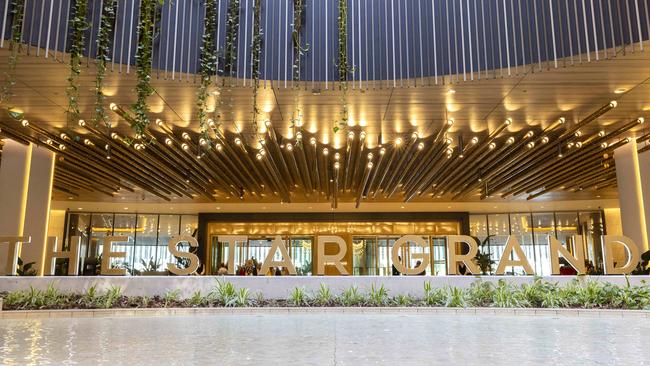
Conversations are being had around the market about who gets what if The Star Entertainment Group fails, and there’s chatter that its Sydney-based slot machines could be heavily coveted by Blackstone.
Blackstone owns its major rival, Crown Resorts.
The New York buyout fund has been keen to lobby the NSW government to gain permission to secure the slot machines from Star – if they become available – for Crown’s casino floor at Sydney’s Barangaroo.
While Crown has the machines at other casinos in Melbourne and Perth, it does not have government approval to operate them at its NSW venue pitched at high roller gamblers, and slot machines keep the money flowing in casinos when those placing the big bets are absent.
Tougher gambling laws and crackdowns on money laundering have hit Crown Resorts and Star Entertainment hard.
The focus now is on whether Star Entertainment survives after facing tough fines for money laundering law breaches, steep costs for its Brisbane-based Queen’s Wharf development and dwindling profits partly brought on from the introduction of cashless gaming.
While there’s been speculation that Blackstone could buy casinos from Star, some question whether it would double down on its investment in the sector in Australia after what has likely been a less-than-enjoyable experience with Crown due to the industry changes.
Wealthy investors such as the family of Bruce Mathieson are seen as more likely buyers of individual casinos owned by Star, which more recently has lured Macau investor Wang Xingchun to snap up 6.52 per cent of the business.
Star spelt out in recent days what most have known for some time – that there is “material uncertainty” over whether it can continue as a going concern.
Its revenue plunged in December to $299m for the second quarter and costs have risen over its $3.9bn Queen’s Wharf precinct development. It had $78m cash at the end of December.
It was making an $8m loss for the second quarter and $18m in the first quarter on an earnings before interest, tax, depreciation and amortisation basis.
A number of investors late last year were hesitant to pass over more funding – even after its refinancing deal – due to concerns it may not survive.




To join the conversation, please log in. Don't have an account? Register
Join the conversation, you are commenting as Logout